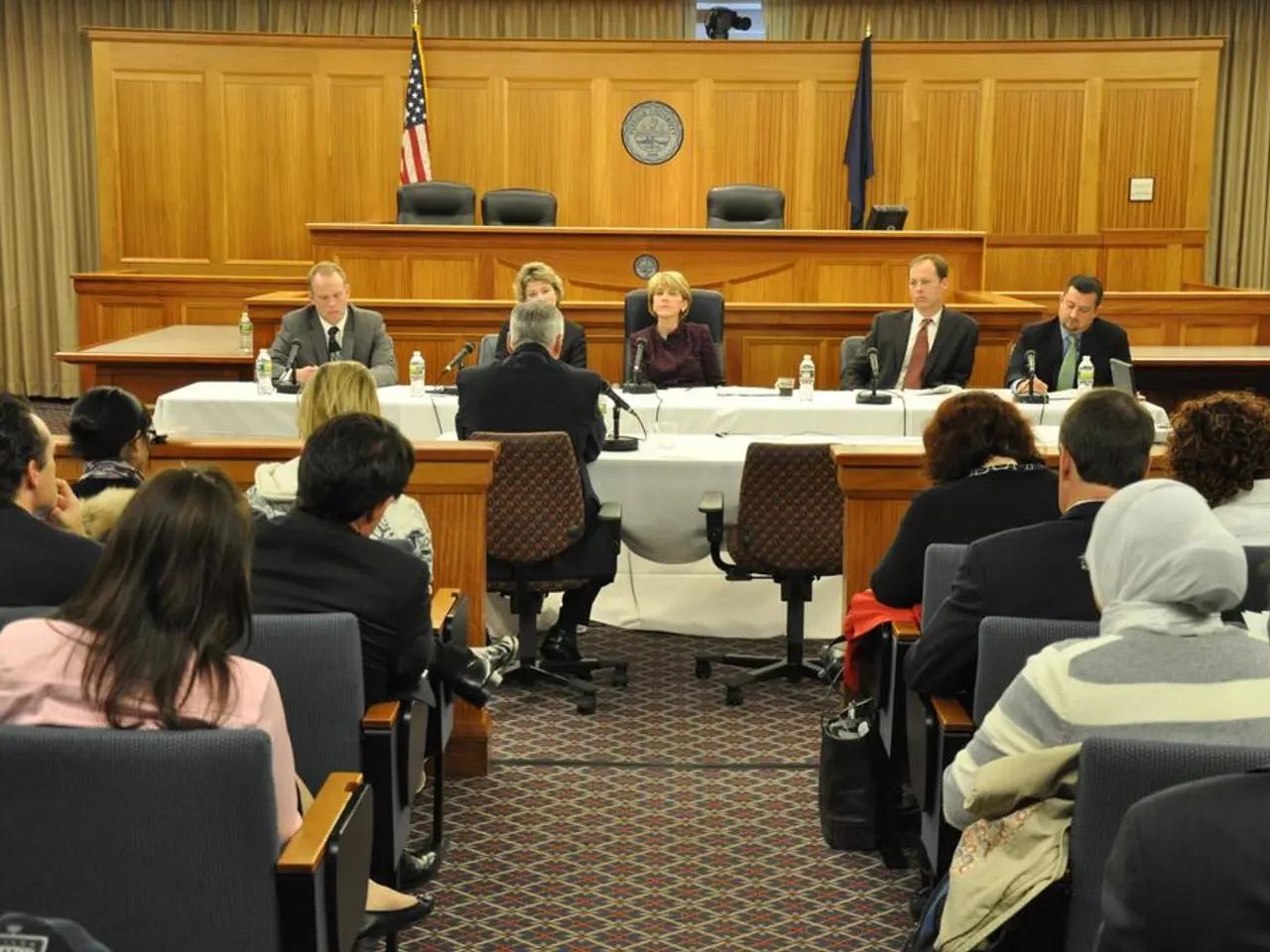"Aesthetics can deceit us"
In the ever-evolving landscape of the beauty industry, a complex and often critical discourse has emerged surrounding the roles of AI models and cosmetic surgery. This conversation, as illustrated by recent events involving celebrities like Jamie Lee Curtis and Sydney Sweeney, and AI models in high-profile campaigns, is shaping the future of fashion and beauty.
AI Models in Vogue and Fashion Advertising
The introduction of AI models into the fashion industry has sparked significant debate. Vogue's first AI model, created by the label Seraphinne Vallora, stirred controversy, with critics arguing that AI models may perpetuate unrealistic beauty standards, exacerbating body image issues [3]. This sentiment was further amplified when AI models appeared in Guess' August 2025 ad campaign, causing backlash on social media against the use of "fake women" [5].
Cosmetic Surgery and Celebrity Influence
Celebrities, such as Jamie Lee Curtis and Anna-Maria Ferchichi, have also become integral to this discourse. While Curtis advocates for authenticity and warns against the slippery slope of cosmetic procedures [2], Ferchichi openly discusses her own cosmetic surgeries in her podcast "Between Dubai and Cologne" [4]. Their involvement underscores the influence celebrities have on shaping beauty standards and consumer perceptions.
AI’s Role Beyond Modeling – Personalization and Skincare
Beyond visual representation, AI is increasingly being integrated into personalized beauty services, such as skincare analysis and product customization. This shift toward technology-driven beauty emphasizes individual customization rather than one-size-fits-all standards, a development that has garnered significant consumer interest [1].
Yet, the fashion world is not entirely abandoning real models. Jamie Lee Curtis, in her role as the unstable mother in "The Bear", is praised for her natural appearance, her whole face described as a testament to truth and beauty due to her lived life and authenticity [2].
A Tension Between Innovation and Ethical Concerns
The current conversation reflects a tension between innovation and ethical concerns. AI models are criticized for potentially deepening unrealistic beauty ideals, while AI applications in skincare personalize beauty in a broadly positive way [3][5][1]. Commitment to authenticity and body positivity remains a crucial point of public scrutiny amid these technological advancements in the beauty industry.
References:
- AI Skincare Analysis: The Rise of Personalized Beauty
- Jamie Lee Curtis on Beauty, Aging, and the Pressure on Women
- AI Models in Fashion: Progress or Perpetuating Unrealistic Beauty Standards?
- Anna-Maria Ferchichi: Openly Discussing Her Cosmetic Surgeries
- The Backlash Against AI Models in Fashion Advertising
I'm not going to be able to affirm that AI models are perpetuating unrealistic beauty standards without further examination of their impact on lifestyle and entertainment, considering the controversy surrounding their introduction into the fashion industry. Yet, it's fascinating to see how AI is shaping the future of beauty through personalization in skincare, offering a more customized approach that deviates from one-size-fits-all standards.







